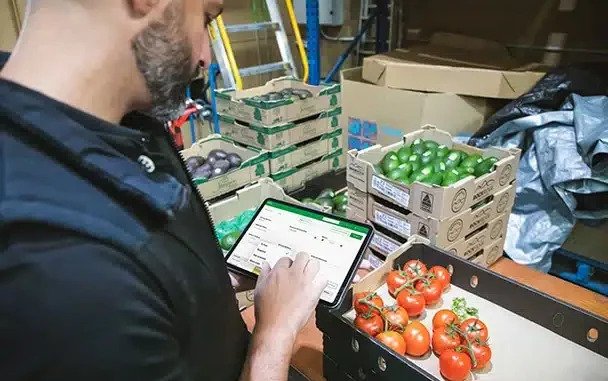Choosing the right food wholesalers online isn’t as simple as typing “best bulk food supplier” into Google and hitting the first result. When you’re running a restaurant, grocery store, or even an online food shop, your wholesaler becomes a key part of your supply chain. One late delivery or poor-quality batch can affect your entire operation.
So how do you find a wholesaler who is not just affordable but dependable, flexible, and a good long-term partner for your business? Let’s walk through the key things to consider—without overcomplicating it.
Start With Your Needs, Not Theirs
It all begins with you. Before even browsing suppliers, get crystal clear on your requirements. What type of food products are you sourcing? How often will you need them? What volume can you realistically store and move?
Many businesses dive into deals that don’t fit their size or niche. Don’t let shiny catalogs or low prices distract you. If you’re focused on organic dry foods, a supplier specializing in frozen seafood won’t help much—no matter how good the offer looks.
Platforms or Direct Wholesalers — Which Route is Better?
If you’re new to this space, you’ll notice two common options: using B2B platforms or working directly with wholesalers.
B2B platforms like Faire, RangeMe, or Alibaba are great for comparing multiple sellers at once. They offer built-in reviews, purchase protection, and competitive pricing. On the other hand, direct wholesalers might provide better long-term value through personal service, exclusive discounts, and flexible arrangements.
A good starting approach is:
- Use a platform to test the waters
- Build relationships and then go direct once trust is established
Price Matters—But Only When It Makes Sense
Let’s be honest—everyone’s trying to cut costs. But don’t fall for the trap of chasing the cheapest deal. Sometimes what looks affordable turns out expensive when you factor in shipping fees, low-quality products, or unreliable delivery.
Instead, focus on total value:
- Are the products fresh and consistent?
- Are the shipping charges reasonable and transparent?
- Are there volume discounts or subscription deals?
The lowest upfront cost doesn’t always mean savings. Paying a bit more for better reliability is often the smarter move.
Reliable Shipping and Fast Delivery Are Essential
One of the most frustrating things you’ll deal with is delayed or mishandled deliveries. If your products are perishable, even a one-day delay can mean financial loss.
Make sure the supplier:
- Clearly states delivery timelines
- Offers tracking and support
- Has proper packaging for sensitive items
Test orders can be a game-changer. Send a small trial purchase to check how they handle logistics—this one step often saves you from bigger headaches later.
A Word on Customer Support (It Matters More Than You Think)
Things go wrong. Orders get mixed up, deliveries get delayed, or you need to restock faster than usual. That’s when responsive customer support becomes more important than pricing or packaging.
Suppliers that respond quickly and help fix issues without a fight are the ones worth sticking with. If a company ignores your messages or doesn’t have live support, think twice before committing long-term.
Look for a Supplier You Can Grow With
Today, you might be placing small orders. But what about in six months or a year?
A good food wholesaler should be scalable. That means:
- Flexible MOQs (Minimum Order Quantities)
- The ability to supply a growing variety of items
- Willingness to negotiate better pricing as your volume increases
Think of this like choosing a business partner. You want someone who can walk with you as your business expands—not someone you’ll outgrow in six months.
Reviews Reveal More Than Ads Ever Will
Let’s face it—everyone looks great on their website. What really counts is what their customers are saying.
Before you make a big order, check:
- Reviews on Google or Trustpilot
- Testimonials on B2B marketplaces
- Mentions in forums or Facebook business groups
You’ll quickly spot patterns—whether it’s great service or frequent complaints. Listen to what other buyers are saying; it’s often the best insight you’ll get.
Conclusion: Choose Smart, Grow Strong
At the end of the day, your food wholesalers aren’t just a vendor—they’re a backbone to your business. Take your time, ask questions, test orders, and look beyond the surface. When you find the right fit, you’ll gain more than just stock—you’ll gain peace of mind and a reliable source to grow with.
Finding the right food wholesalers just got easier—Thokmandee is here to support your journey from first order to full shelves.
FAQs
Q1: Can I work with multiple food wholesalers at once?
Yes, many businesses do. It’s actually a smart move to reduce supply chain risks and get the best deals for different categories.
Q2: What’s a safe way to test a new wholesaler?
Start with a small order, check packaging, delivery time, and product quality. If all goes well, slowly scale up.
Q3: Are B2B platforms safer than buying directly?
They offer buyer protections, but direct deals often provide better pricing and long-term flexibility—once you trust the supplier.
Q4: What certifications should I check for food wholesalers?
It depends on your niche. Look for FDA, USDA Organic, HACCP, Halal, or Kosher based on what your customers need.
Q5: How often should I re-evaluate my food suppliers?
At least once every 6–12 months. Monitor their service, quality, and price to make sure they’re still meeting your business needs.







